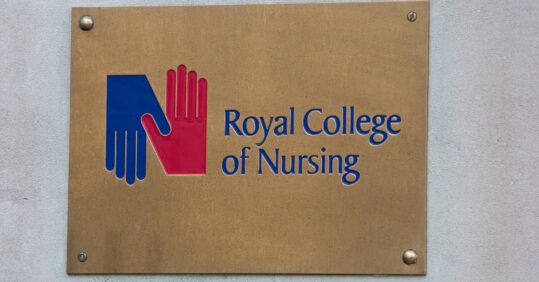Threshold for securing RCN extraordinary general meeting to increase

The threshold for securing a Royal College of Nursing (RCN) extraordinary general meeting (EGM) has been increased following a vote by the membership.
EGMs are typically called by members to discuss an issue of particular importance or concern and up until now were secured by 1,000 members in writing.
As part of a resolution voted on during an annual general meeting (AGM) in Manchester on Monday, 82% of voting members supported a move for the threshold for calling an EGM to be increased to 5% of the total membership.
As part of this same motion, 85% of members supported a move to enable RCN Council to make regulations ‘setting out the method by which members may propose resolutions at general meetings called by the council’.
Going forwards, this means 5% of the total RCN membership will need to support calls for an EGM for it to proceed and a process will be put in place to give members a direct route to submit items and speak to council directly at their meetings, said the RCN.
Related Article: ‘Patients not prisoners’: Palliative care nursing behind bars
With the organisation currently having more than 500,000 members, the change would mean more than 25,000 members would have to call for an EGM for it to proceed.
Some 82% of members also voted in favour of enabling the RCN Council to make regulations to establish ‘how requisitions calling for an EGM are to be submitted and authenticated, to ensure their validity’.
The vote comes after around half of signatures used on a recent petition against the RCN’s recommendation to accept a pay deal were ‘submitted fraudulently’.
Other key changes voted on by RCN members
At the meeting, RCN members also voted in favour of resolutions related to council members and subscription rates, and discussed key topics of concern, including parity of pay for general practice nurses.
During the annual meeting this week, 82% of members also voted to extend current RCN Council members’ terms of office for one year.
The RCN said this related to any council member whose term of office was due to expire on 31 December 2023 and that this would be extended until 31 December 2024.
The RCN the resolution was intended to ‘help ensure continued stability’ and allow current council members to ‘progress work’ resulting from recent reviews which raised concerns around the culture of the college, it said.
Related Article: NHSE confirms dates and eligibility for autumn Covid and flu jabs
It was also aimed at helping to deliver the RCN’s five-year strategy and to ‘avoid an additional set of expensive statutory postal election costs’, it noted.
Carol Popplestone is the current chair of RCN Council and Paul Vaughan is the vice chair.
A separate resolution saw 75% of members supporting a move to allow RCN Council to set subscription rates to the college for a further five years to ‘help ensure the financial stability of the organisation’.
Vice chair of RCN Council Mr Vaughan said the resolutions would ‘provide stability, allow for growth and underpin the changes needed’ as highlighted in recent reports into the RCN.
He added: ‘The Council I have joined fairly recently is focused on holding the executive to account for the delivery of the RCN’s new strategy, ensuring we deliver together on transformation of our professional union and the sound finances that allow for continued support of members and our future growth.’
Other topics discussed at the annual meeting included: support for nursing students with a disability, how to reinvigorate the RCN’s branch structure and work on challenging the unethical contracts that some internationally educated nurses have been found to be coerced into signing.
The RCN said that the issue of parity of pay for general practice nurses was also discussed at the AGM – though when asked by Nursing in Practice it was unable to provide any further information.
Related Article: QICN bids farewell to Dr Crystal Oldman as she retires from CEO role

See how our symptom tool can help you make better sense of patient presentations
Click here to search a symptom




